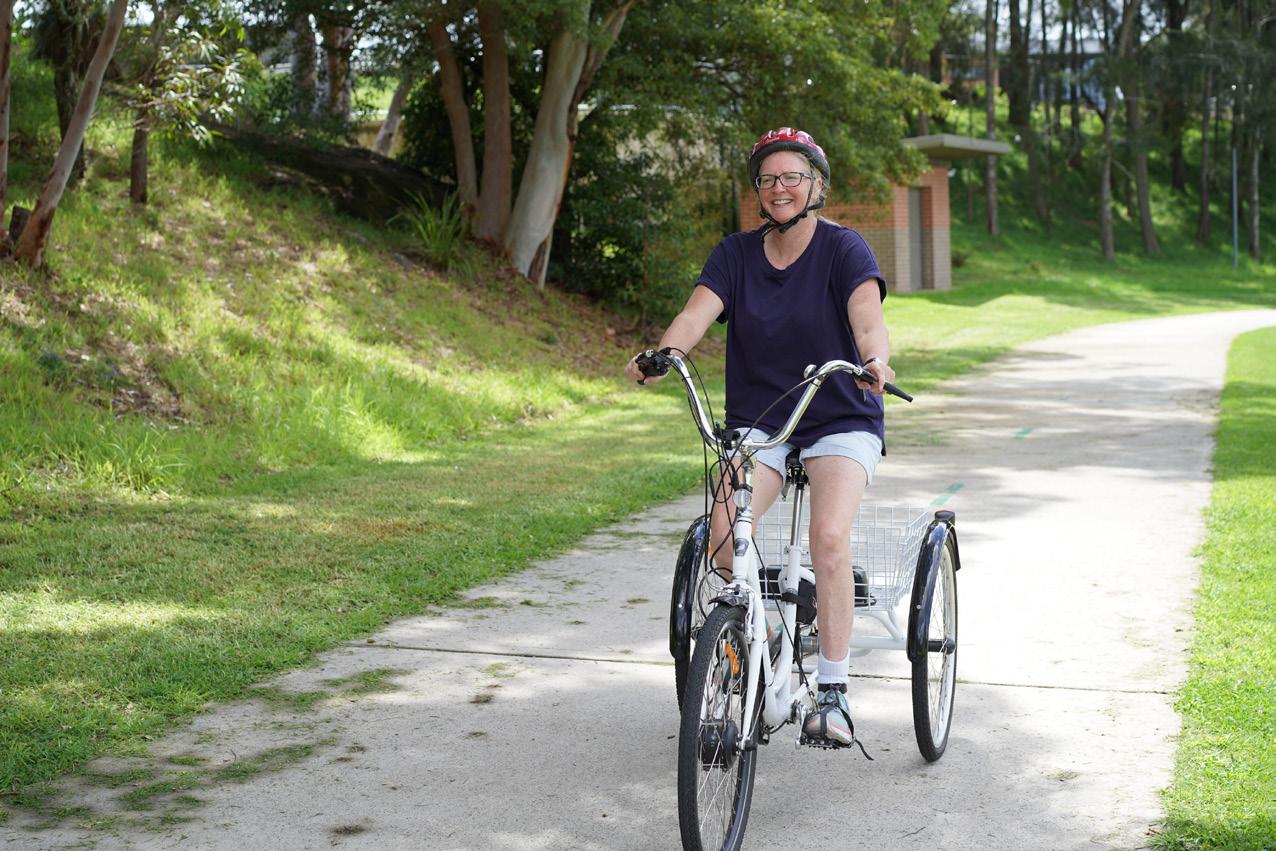
3 minute read
WFOT Update
Associate Professor Emma George (1st Alternate Delegate)
Occupational Therapy Australia strives to develop networks and collaborations across the globe through our membership of the World Federation of Occupational Therapists (WFOT), and more locally through our neighbouring associations in the Asia Pacific region as a member of the Asia Pacific Occupational Therapy Regional Group.
WFOT President Samantha Shann recently spent some time in the region in the lead up to the 8th Asia Pacific Occupational Therapy Congress, and I took the opportunity to ask her about her experiences:
What is the most exciting thing about the growth of OT in the Asia Pacific region?
Samantha: What I find most exciting is that there is development at all levels across the Asia Pacific region. Countries that have had occupational therapy for many years are expanding scope of practice and getting recognition from health and social providers for the development of new posts. Countries where the profession is less established are working hard and beginning to get more recognition at government level. National occupational therapy associations are growing in number and advocating for the profession. On a recent visit to Vietnam, it was good to witness the official launch of the new Occupational Therapy Network, which will hopefully in time become an official association and member of WFOT. There is also lots of exciting research happening, at undergraduate as well as PhD level, and it’s good to see the evidence being shared with the rest of the world, influencing practice and education globally.
What is the biggest challenge for growth of OT in the Asia Pacific region?
Samantha: I think the challenge of growth is much the same around the world. As occupational therapists, we need to advocate and promote the profession at every level. Finances are often stated as a reason for limited growth, so we need to provide evidence of our value. WFOT tools such as QUEST and the Economic Evaluations can assist with this. We also have to recognise that the majority of national associations are run entirely by volunteers and therefore members of associations need to contribute and be willing to volunteer too. The more people we can divide the work between, the more we can hopefully achieve by working together. Right now, with the adoption of the World Health Assembly resolution on ‘Strengthening Rehabilitation in Health Services’, I believe we have a great opportunity to promote the occupational therapy profession and to demonstrate our value as essential members of rehabilitation teams.
What do you think Occupational Therapy Australia can do to support and promote OT in our region?
Samantha: I believe sharing of resources and listening to each other is the best way to support growth. Being able to understand the local context is important and developing culturally relevant and sensitive practices – for example, looking at how useful standardised assessments may or may not be in certain contexts and how these may be revalidated and adapted. As a profession we need to look at how we support and develop early researchers, guiding them so they can keep an occupational therapy and/ or occupational science focus and assisting with publication opportunities. For many years now my biggest feeling about support and development is the involvement of the local national associations. I strongly believe if we can support national associations to develop and plan strategically, we build stronger foundations for the profession in the country. The Asia Pacific Occupational Therapy Regional Group plays an important role here in bringing countries and associations together.
Any final message to OTA members from WFOT?
Samantha: Thank you for the courageous and innovative ways OTA members have responded to recent natural disasters that have affected communities across Australia. Also, thanks for the continued support of WFOT and the profession on a global level. I see and hear about some excellent collaborations especially between occupational therapy education programmes. I look forward to seeing many OTA members at the WFOT 2026 Congress in Bangkok, and also in Sapporo next year for the APOTRG Congress.
8th Asia Pacific Occupational Therapy Congress
The 8th Asia Pacific Occupational Therapy Congress (APOTC) will be held 6-9 November 2024 at the Sapporo Convention Center in Sapporo, Japan
Early bird registration for international participants is open now. Visit https://www.c-linkage.co.jp/ apotc2024/ for more information.
QUEST
QUEST provides a comprehensive strategy to use data to demonstrate the value of occupational therapy. QUEST describes a set of seven occupational therapy quality indicators applicable to all practice settings. Scan the QR code for QUEST resources.








